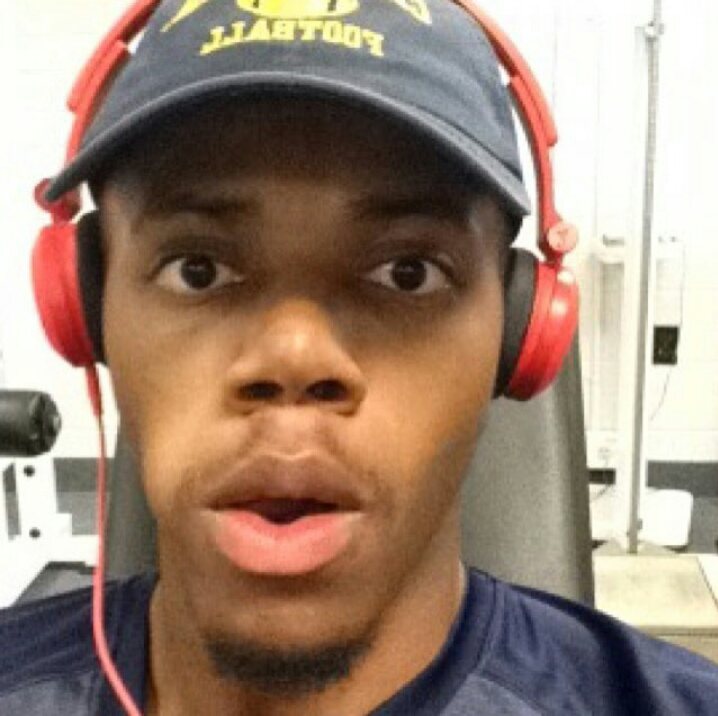The supremacy of collegiate sports becomes the voice of marginalized athletes

This archived article was written by: Edmond James Sanders Jr.
occurred for months and Wolfe deflected any attempt to speak with him.
This sparked protest campus-wide, captured the attention of professors and faculty, as well as support among not only the 32 African-American football players; however, the entire group with 100 percent backing from coaches of their players pronouncement.
This would sooner or later begin to affect the reputation of U of M and penal- ties against the athletic department as if they forfeit Saturday’s game against BYU, National Collegiate Athletic Association would penalize them with a $1 million fine due to breach of schedule agreement.
victors of one of the greatest wins in sports history a few days prior.
Michael Jordan and the Chicago Bulls, back-to-back-to-back NBA champions; a squad that reiterated that triumph twice in a decade. Michal Phelps, gold medal recipient eight times in the 2008 Bei- jing Olympics. The San Antonio Spurs employed one of the first-ever women assistant coaches in the National Bas- ketball Association. Travel back some eras and we arrive at Jessie Owens and his accolades or Jackie Robinson and his bravery, which dismissed the color barrier in Major League Baseball and reformed the game forever.
Oct. 10, 2015, members of the 1950 Group (1950 Group are University of Missouri Alumni, who were the first
Collegiate sports is more than strength, athleticism and skill; furthermore, it in- stalls comradery, leadership, education, experience and uses those attributes to establish men and women and equip them with the apprehension of their power and voice in the public eye.
African-Americans admitted into the university) blocked Wolfe’s car after the homecoming parade in attempt to speak with him, however, Wolfe did not get out of the car. Wolfe said he regretted his reaction and that his behavior, “seemed like I did not care, I was caught off guard in that moment.”
U of M’s football program released a picture showing their support and a mes- sage that read, “The athletes of color on the University of Missouri football team truly believe ‘Injustice Anywhere is a threat to Justice Everywhere.’ We will no longer participate in any football-related activities until President Timothy Wolfe resigns or is removed due to his negligence toward marginalized students experience. WE ARE UNITED!!!!.”
Racism on the campus of Missouri University has been going on for years from students to faculty and it was when a football program backed a former peer that sparked a nationwide concern and support from the University of Alabama and individuals throughout the states; the power of sports.
College athletes are role models to the hundreds of thousands of youth worldwide and entertainment and way to reminisce of the good times to those of the past.
Pressure delimited Wolfe whom 32 African-American members of the football program refused to practice and threaten to forfeit last Saturday’s game against Brigham Young University.
Wolfe resigned as president on Mon- day, Nov. 9, 2015.
More importantly college athletes have a voice to make a difference and are no longer just athletes, entertainment or products, but they can shape the world as long as they stand together
as a unit and in November
2015, Missouri football
did just that; supporting
people who stand to-
gether for a cause. We are
Missouri U, go Tigers.
Fast forward to 2015 Columbia, Mo., home of the Tigers of Missouri University. Students went on strike due to disre- gard from University President Timothy Wolfe, of racial annotations fixed towards the institution’s minority. These events
This movement started when an African-American male graduate student, Jonathan Butler, went on a week-long hun- ger strike to call attention to the matter. He refused to eat pending the removal of Wolfe from his duty as president.
What started with a hunger strike from graduate student, inspired a foot- ball program that understood they have a voice and harnessed that muscle to mandate change that became news and nationwide concern.
Missouri football returned to the gridiron and competed against BYU on college football Saturday in Kansas City, Mo., as they pulled off an underdog victory over BYU (7-3) 20-16. It’s a great time to be a Missouri Tiger! Coming back from a layoff with a statement win and arguably




